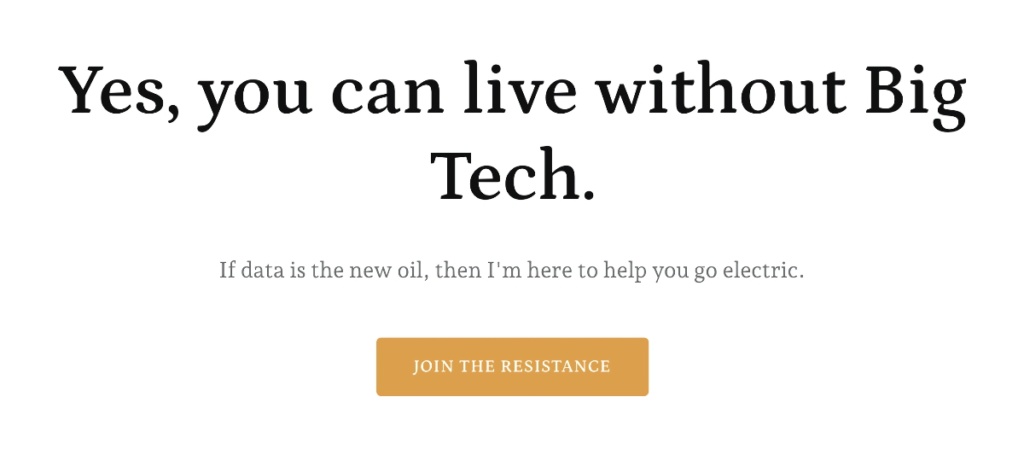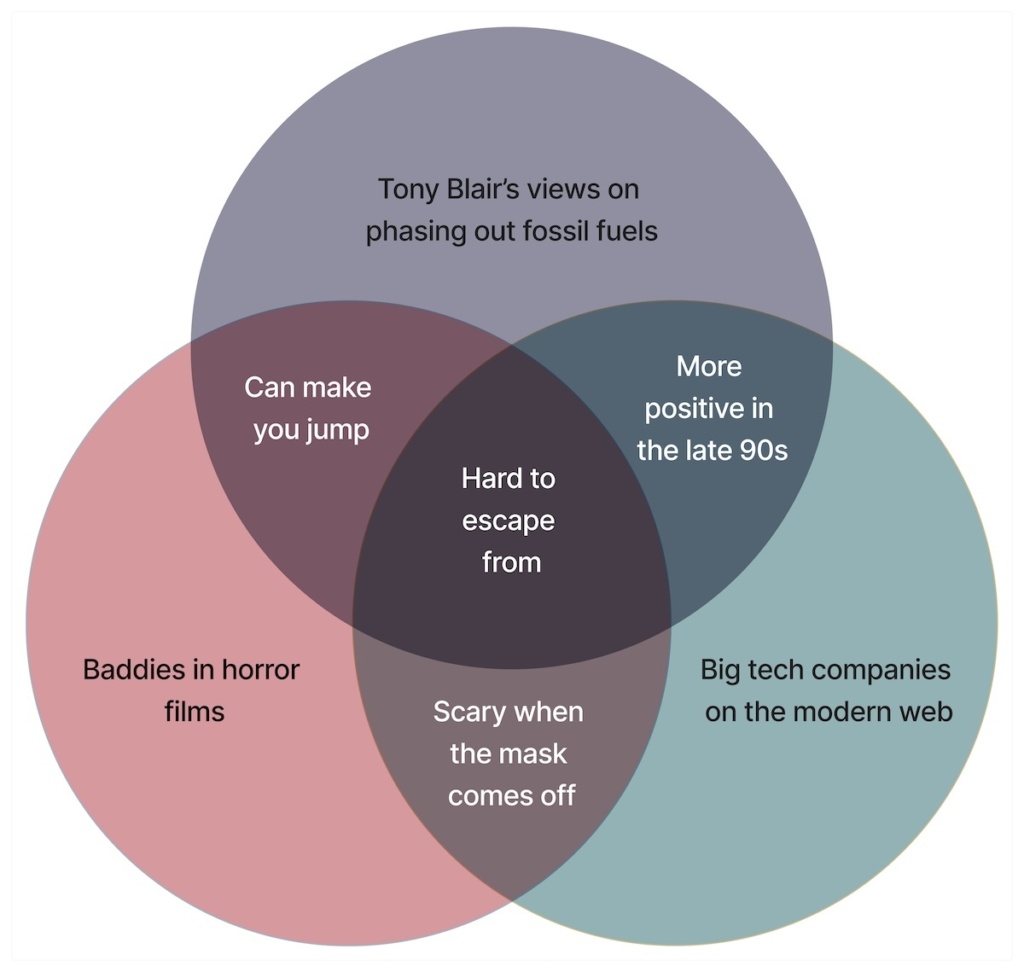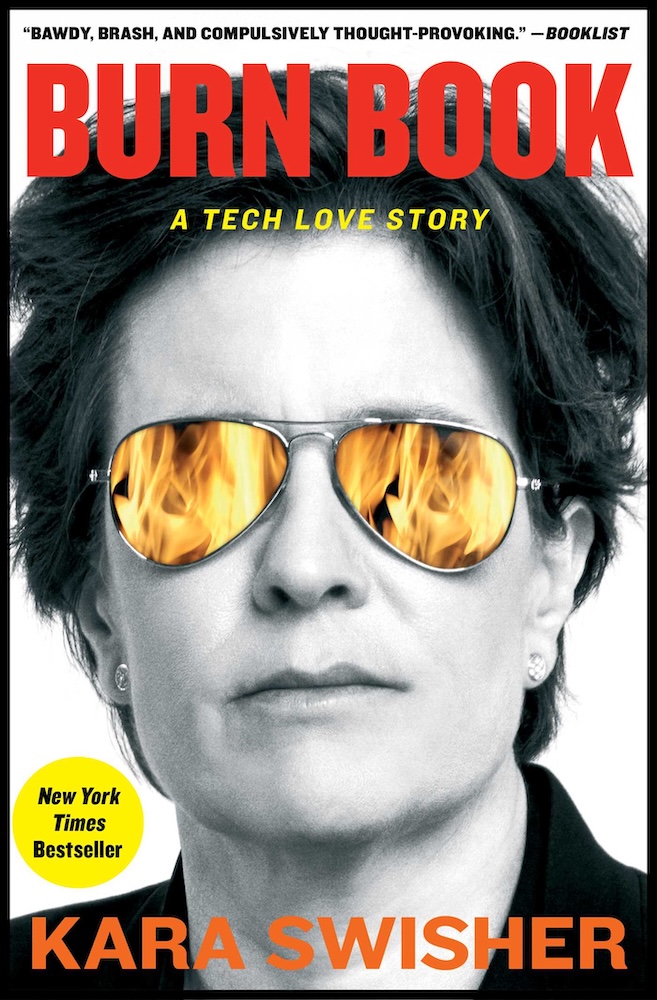|
Climate action for developers & opting out of big tech
|
Welcome to Issue 64 of Curiously Green!
This month is a bumper edition. Scroll down to find:
- Resources for sustainably minded developers
- Reasons to focus on human outcomes and not AI enhanced levels of output when it comes to content
- A guide to opting out of big tech’s influence
- A review of Burn Book: A Tech Love Story
- An insight into how The Engine Room is working to make information eco systems fairer in Latin America
and much more.
If you’ve got comments, feedback or ideas for forthcoming issues, just hit reply to this email and I’ll be in touch.
Enjoy the newsletter and stay curious.
Andy
|
|
|
Curious picks from the green web
|

Climate Action Plan for Developers
|
Stumbling upon a well maintained repository of sustainability focussed resources for developers is always a pleasure. Github’s Climate Action Plan for Developers hub is no exception. Set up with the sole aim of helping people to write greener code, there are resources in here for front end and back end devs alike.
I found the electricity maps API and Green Software Directory of particular interest and Wholegrain’s developer team have been happily exploring this hub too.
Let me know if you’ve used any of the solutions here or if you know of similar resources elsewhere.
|
|

AI in communications strategy: Focusing on outcomes, not just output
|
This article by Nina Whitby at Greenhouse PR goes against the common narrative around AI and digital output in general. We are told that Generative AI will help us become more efficient and increase output. That it will empower us to do more in less time.
According to Nina this ignores the fact that “impact matters more than output”. Rather than increasing output we should be focusing on the people our communications and content aims to reach. Using AI to increase the amount of content an organisation can create risks losing the tone, personality and human insight that shines out of “hand-crafted” writing.
While you might guess my views on using AI in general, it’s refreshing to see an article like this. Impeccably argued, compellingly written and backed by relevant data, this is the antidote to blindly following the latest GenAI trends.
|
|

The Opt Out Project
|
A connection on LinkedIn recently shared the Opt Out Project with me and I’m slightly obsessed with it.
The site and project is the creation of Janet Vertesi a self described geek and sociology professor at Princeton university. In 2014 she conducted a personal experiment to try and hide her pregnancy from online detection. She wanted to know if she could successfully conceal the fact that she was expecting from the modern panopticon of search engines and social media.
In Janet’s eyes “Opting out is about putting the power back in our hands, where it belongs”. I share her view that we should be able to browse online without being subject to data gathering, dark UX patterns and algorithmic bubbles. We can do this and in the process reduce the environmental impact of our digital lives. It just takes effort.
Following her advice and philosophy makes this journey a little easier.
|
|
|
|
|
Venn diagram of the month
|
The first of a (possibly) short series of topical tech and sustainability related Venn diagrams…

|
|

Burn Book: A Tech Love Story
|
A candid tell all of the digital landscape and the humans behind fueling its rapid growth. Kara Swisher has reported on the trajectory of tech since the early 90’s, and has been honest and firm from day one. Swisher’s balancing act between insider and critic of Silicon Valley, forces anyone who reads her work to think critically about how we move forward with tech – and more crucial – who’s in charge of it. At points it gets uncomfortable hearing how people actively decided to design algorithms to permeate into our everyday lives and even if you have a mantra ‘Don’t be Evil’ – you can still become evil one day. Despite some harrowing tales, her wit and storytelling demonstrate it’s not all doom and gloom if you speak truth to power – it doesn’t have to stop with Burn Book.
Bailey Bryan – Wholegrain New Business Manager
|
|
|
|
|
Working towards healthier information ecosystems in Latin America and the Caribbean
|

The Engine Room is a global not for profit that helps strengthen the fight for social justice. They do this by supporting civil society to use technology and data in strategic, effective and responsible ways. Wholegrain recently worked with them to showcase a new report on digital technology’s role in shaping information ecosystems in Latin America and the Caribbean.
The report covers political polarization, information disorder, digital surveillance and attacks on media and journalists in the region. It is also a reflection and exploration of how civil society across these regions has been working to build more robust information ecosystems.
The work the Engine Room does to support social justice in digital spaces is incredibly important and offers important insights to us in the so called “developed” world.
You can explore the findings of the report and the accompanying website by clicking the link below:
Visit the Info Ecosystems site
|
|
|
We want to hear from you!
|
|
Submit ideas, news and links for the next issue.
|
Don’t forget, we want to hear more from you, the Curiously Green community! If you’re heard or read something that may be of interest, please share any links, and your thoughts with us.
Even better, we’d love to know what you’re working on. If you have any case studies or projects you’d like to share, or new approaches you’ve tried that may be of interest, this is a great way to share with like minded folk so please head over to our submission form and tell us all about it!
We can’t wait to hear from more of you. 💚
|
|
|
|
|
News from the Curiously Green community and beyond
|
-
I saw this colour contrast checking tool recommended recently and found it to be a neat interface. The WebAIM millions report I shared last month found that low colour contrast remains the number one web accessibility issue on today’s websites. Check that the colour combos on your site isn’t contributing to this issue with the tool today!
-
Research by the Institute of Engineering and Technology finds that nearly half of people in the UK are unaware of the environmental impact of generative AI. Would people be so quick to jump on AI image bandwagons with a little more education?
-
I found this article on AI’s potential role in peace keeping fascinating. (Minus points for the AI generated featured image though)
-
For the second newsletter in a row an article from the .eco team. This time they’re talking about community and the human aspect of supporting and protecting sustainability movements in the face of attacks from oppressive regimes.
-
Headlines like “ChatGPT-maker wants to buy Google Chrome” makes me think that I’ve misunderstood the term “Antitrust”.
-
A step towards digital independence? France and Germany unveil the unimaginatively named “Docs” as an alternative to GSuite and Microsoft office. As a French based newsletter writer I’m eagerly awaiting access to do some “Opt Out Project” friendly testing…
|
|
|
This issue of Curiously Green is curated and written by Andy Davies with suggestions and input from Bailey Bryan
|
|
|
|